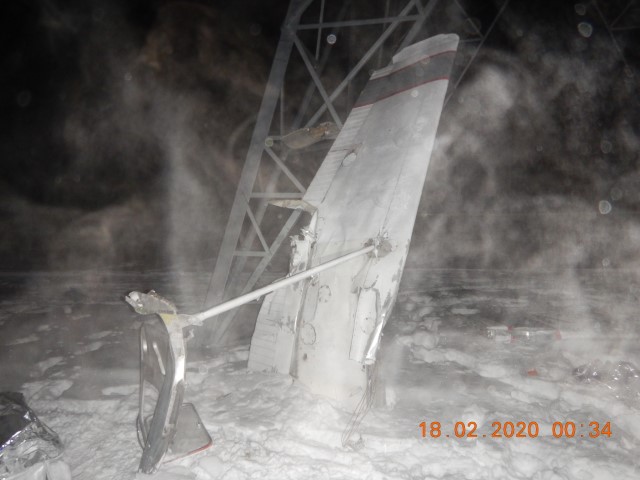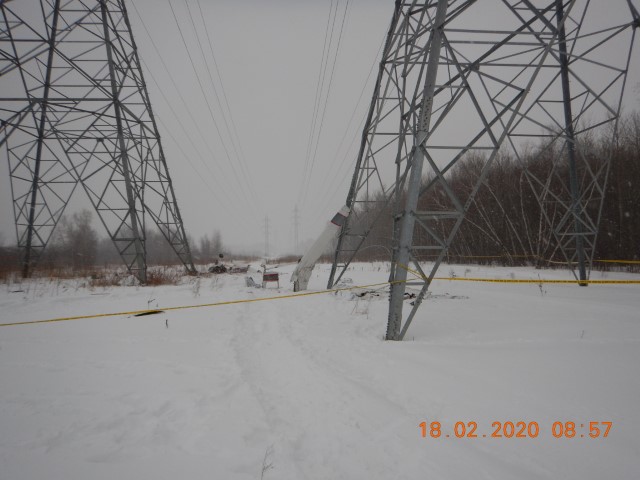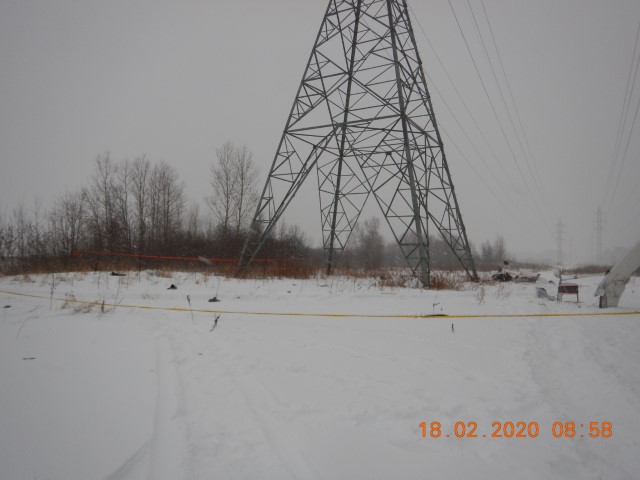Collision with power lines
Privately registered
Cessna 150M, C-GYEV
Les Cèdres, Quebec
The occurrence
On 17 February 2020, a privately operated Cessna 150 aircraft was conducting a local nighttime flight under visual flight rules from Saint-Lazare Airport, Quebec, with one pilot and one passenger on board. While the aircraft was about 1.75 NM east of the Montréal/Les Cèdres, Quebec aerodrome (CSS3), it struck two power lines before colliding with the ground. The aircraft was destroyed and both occupants were fatally injured.
Media materials
News release
Investigation report: February 2020 collision with power lines of a small aircraft in Les Cèdres, Quebec
Read the news release
Deployment notice
TSB is deploying a team of investigators to a Cessna 150 aircraft accident near Montréal/Les Cèdres Airport, Quebec
Dorval, Quebec, 17 February 2020 – The Transportation Safety Board of Canada (TSB) is deploying a team of investigators to the site of a Cessna 150 aircraft accident that occurred near Montréal/Les Cèdres Airport, Quebec. The TSB will gather information and assess the occurrence.
Investigation information
Download high-resolution photos from the TSB Flickr page.
Class of investigation
This is a class 4 investigation. These investigations are limited in scope, and while the final reports may contain limited analysis, they do not contain findings or recommendations. Class 4 investigations are generally completed within 220 days. For more information, see the Policy on Occurrence Classification.
TSB investigation process
There are 3 phases to a TSB investigation
- Field phase: a team of investigators examines the occurrence site and wreckage, interviews witnesses and collects pertinent information.
- Examination and analysis phase: the TSB reviews pertinent records, tests components of the wreckage in the lab, determines the sequence of events and identifies safety deficiencies. When safety deficiencies are suspected or confirmed, the TSB advises the appropriate authority without waiting until publication of the final report.
- Report phase: a confidential draft report is approved by the Board and sent to persons and corporations who are directly concerned by the report. They then have the opportunity to dispute or correct information they believe to be incorrect. The Board considers all representations before approving the final report, which is subsequently released to the public.
For more information, see our Investigation process page.
The TSB is an independent agency that investigates air, marine, pipeline, and rail transportation occurrences. Its sole aim is the advancement of transportation safety. It is not the function of the Board to assign fault or determine civil or criminal liability.


